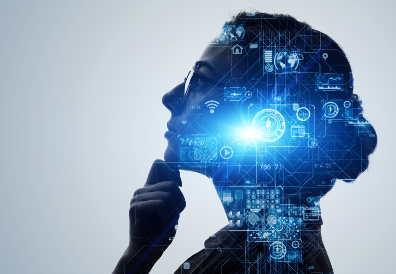When considering AI PCs, factor circularity into your thinking
Nearly all the major PC makers are pledging to ship AI-ready PCs in 2024, and AI PCs are expected to drive a wave of upgrades over the next two years. Take circularity into account in your upgrade plans as you embrace this new technology.

Artificial intelligence-equipped PCs were the big story at CES, the recently concluded conference highlighting the latest consumer electronics innovations. Chipmakers like Intel, AMD, and Qualcomm showed off new chipsets with onboard neural processing units (NPUs), specialized processors designed to execute the highly parallelized algorithms used in machine learning. Nearly all the major PC makers are pledging to ship AI-ready PCs this year.
While the promise of lightning-fast facial recognition, seamless language translation, and instant image editing sound tempting, many experts caution that now may not be the time to go all in on AI PCs. The software isn’t ready yet; practical applications could be months or even years away. In fact, most of the futuristic scenarios PC makers are outlining for AI-equipped machines are available now without the benefit of dedicated processors.
Action is in the cloud
Most AI functions are currently served from the cloud, with the end-user device acting as essentially a thin client. Internet-connected PCs will gain little from having the help of fast local processors in performing the most common AI tasks. For example, Microsoft’s Copilots are being deployed widely on Windows 10 and Windows 11 PCs with perfectly adequate performance. Large language models require far more processing power than any PC can deliver, meaning they will live in the cloud for the foreseeable future.
“Manufacturers are showing off little built-in tools that use the NPU, like improved microphone noise reduction and an intelligent AI engine that detects whether to spin up (or down) your PC’s fans,” wrote Chris Hoffman in Computerworld. “These are just slight variations on things computers already do, with or without an NPU.”
Leading-edge users who buy the first crop of AI-equipped PCs will find that applications optimized for the new hardware are scarce. Most popular software still relies on traditional CPUs, leaving the fancy AI chips underutilized. It’s like buying a powerful sports car and having only city streets to drive it on.
Early adoption risks
Emerging technology often isn’t ready for prime time. Bugs, compatibility issues, and software that doesn’t take full advantage of the underlying hardware are likely to be common in the early days. Early adopters often become unwitting beta testers for unfinished products. That’s fine for those willing to live with disruption, but most business users just want to get their job done.
Microsoft is expected to release a new version of Windows, which market watchers are calling Windows 12, this year. The company isn’t saying much about new features, but AI is expected to be front and center among them. While there may be some support for new hardware, the company is keenly aware that the vast majority of its customers are running older versions of the operating system. More than two years after Windows 11 was announced, it constitutes less than 30% of traffic to websites monitored by Statcounter, compared to two-thirds for Windows 10. No one is expecting Windows 12 to require AI hardware.
Learn and monitor
Where does this leave IT managers considering 2024 purchase plans? Although caution is warranted, they should definitely look into buying some AI PCs. Gartner forecasts that 22% of all PCs sold this year and 43% in 2025 will have AI features. PC makers who are smarting from two years of down sales following a pandemic-fueled buying frenzy aren’t likely to make cost a major barrier to purchase. Asus co-CEO S.Y. Hsu recently told CNBC that he expects the units to be priced “a little bit higher” than current computers.
Keep an eye on what major software and systems companies say as they roll out new units. Two areas in which AI processors could make a difference in the short term are cybersecurity and power management. For organizations with large mobile workforces, those could be reason enough to buy in.
Consider deploying AI-powered units in use cases that could benefit from more local processing power, such as video editing and language translation. Some vertical and functional use cases may be compelling if the knowledge domain is small enough. For example, doctors could benefit from using AI models trained in drug interactions or repair technicians could access diagnostic data from a laptop or smartphone instead of paging through manuals.
Reuse and refurbish
Take circularity into account in your upgrade plans. AI PCs are expected to drive a wave of upgrades over the next two years. Many of the devices they will replace can be redeployed to internal functions that don't require the latest technology. When decommissioning the remaining devices, use the services of a respected IT asset disposition (ITAD) provider to ensure safe, secure, and environmentally sound disposition – and consider more sustainable options such as remarketing or donation rather than immediate disposal via recycling.
The future of AI PCs looks bright, but unless your organization is culturally wired to embrace early adopter risks, the more prudent approach is to wait until the ecosystem matures, applications are widely available, and prices come down. Sometimes the best technology is the one that's well-established and works seamlessly, not just the one with the fanciest hardware.
Related resources
View More Resources
Circularity is the new IT imperative

The Benefits of E-Waste Management Go Beyond the Environment
